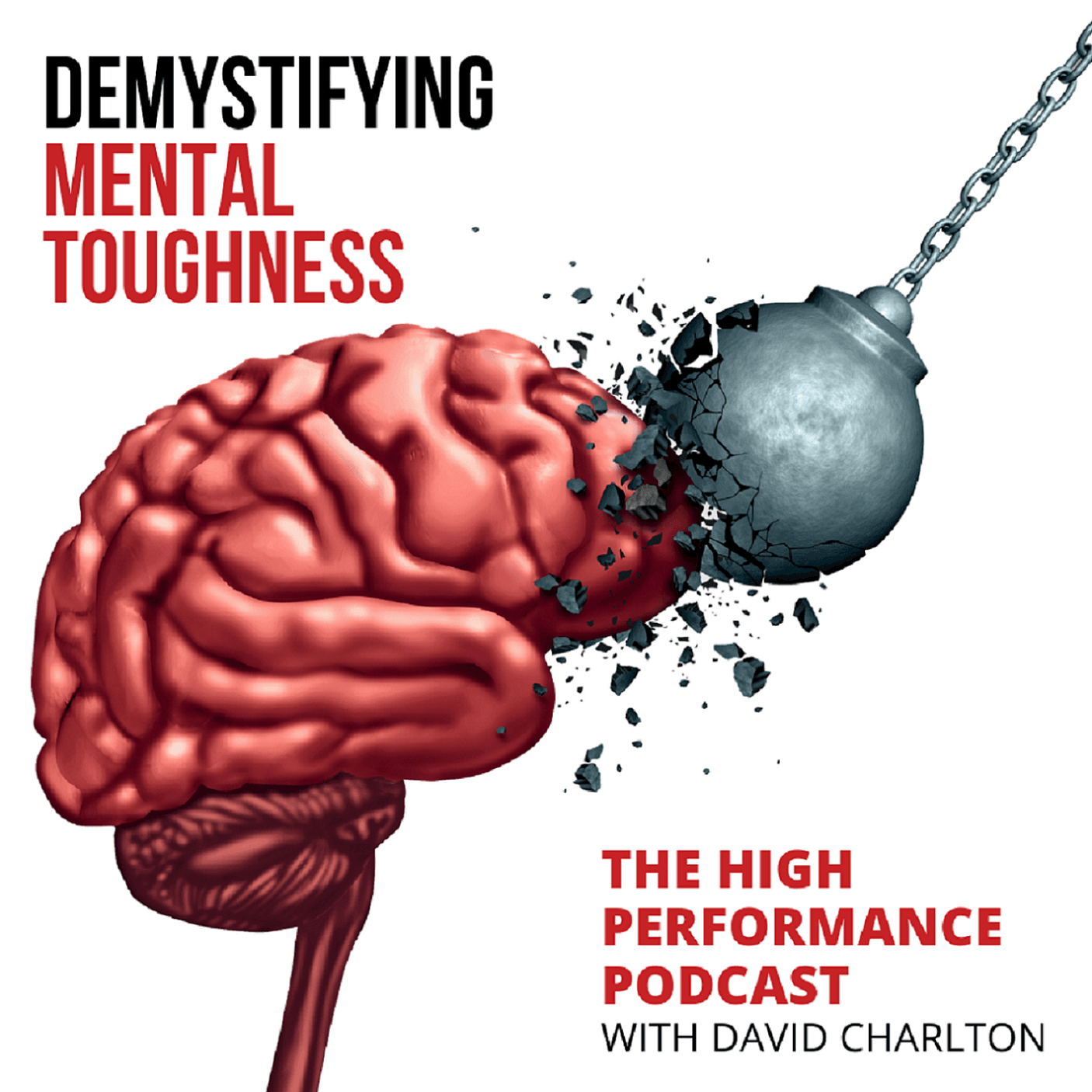Offering Parents, Coaches, Children and Young Adults Inspiration
Demystifying Mental Toughness Podcast
with David Charlton
Helping parents support their children’s sporting confidence, resilience, and enjoyment means giving families the tools to handle setbacks, pressure, and self-doubt. Through practical sports psychology strategies, personal insights and cutting edge information we educate parents, coaches and guide young athletes. With one aim to help children and young adults to thrive in both sport and their everyday lives.

What You’ll Find in the Podcast
- Practical Strategies for Parents – Understand how to support your child without over-coaching.
- Interviews with Experts – Applied sports psychologists, academics, coaches, elite athletes and other professionals share real-life stories.
- Topics Parents Care About – Performance anxiety & match day or competition nerves, confidence, self-belief & self-doubt issues, emotional regulation & anger management, fear of mistakes & perfectionism, mental blocks & fear of injury, training vs competition performance gaps, mental health & emotional well-being
- Age-Appropriate Advice – From early childhood (7 years old) through to early adulthood (21+ years old).
Why Listen
This podcast explores how sports psychology for children can:
- Build lasting confidence both in sport and everyday life
- Teach your child to manage nerves and pressure
- Develop resilience so setbacks don’t knock them down
- Keep them engaged and enjoying sport, even through challenges
- Support your role as a parent without adding extra pressure
Whether your child is 7 years old and just starting, moving through their teenage years, or approaching adulthood the lessons in these episodes are tailored to the developmental stages children go through.
Most Popular Episodes For Parents
- Ep 290: Gordon Mclelland – Stop Focusing on Results: Developing Life Skills Through Sport
- Ep 289: Gordon Mclelland – How To Support Children To Enjoy A Positive Relationship With Sport
- Ep 255: David Charlton – The Immature Brain: How To Help An Emotional Child
- Ep 122: Professor Camilla Knight – Helping Your Children Get The Most From Their Sporting Experiences
- Ep 049: James Maurice – How Does Sport Psychology In Elite Football Academies Help
How to Use This Podcast as a Parent
Be Open Minded – having a degree of openess is powerful. It can allow you to be a better parent.
Listen Together – older children may benefit from hearing age-appropriate episodes.
Apply Small Changes – try one new strategy each week to support your child.
Stay Consistent – reinforcing positive messages builds long-term confidence and enjoyment.
What Parents Commonly Think Mental Toughness Is?
- “Never show weakness” – always looking confident and composed.
- “Push through pain no matter what” – ignoring discomfort or fatigue.
- “Bounce back instantly” – quickly forgetting mistakes or losses.
- “Being fearless” – showing no nerves, anxiety, or doubt.
- “Always positive” – avoiding negativity, frustration, or tears.
- “Winning mindset” – equating toughness with results, trophies, or beating others.
What are Common Misconceptions About Mental Toughness in Children?
- Suppressing Emotions = Strength
- Reality: Healthy toughness involves recognising and managing emotions, not bottling them up.
- Tough Kids Don’t Need Support
- Reality: Even resilient young athletes benefit from encouragement, safe spaces, and guidance.
- Mistakes Shouldn’t Bother Them
- Reality: Feeling upset after setbacks is normal; what matters is learning coping strategies, not pretending it doesn’t hurt.
- Mental Toughness Is Fixed
- Reality: It’s trainable and developmental — built through challenges, reflection, and support over time.
- Toughness Means “No Fear”
- Reality: Fear, nerves, and pressure are part of sport; toughness is about performing despite them.
- It’s All About Willpower
- Reality: True toughness blends self-awareness, adaptability, focus, and problem-solving, not just “trying harder.”
In Practice For Children and Young Adults - What Does Real Mental Toughness Looks Like?
- Bouncing back after mistakes with learning, not avoidance.
- Managing nerves before competition with routines and strategies.
- Displaying a “CAN DO” attitude even when difficulties arise.
- Setting small goals and showing perseverance.
- Knowing when to push and when to rest.
- Asking for help and using support effectively.
- Asserting themselves with bullies and dealing better with criticism or unkind comments.
Full Player
The Sports Psychology Hub - For Parents and Youth Sport Coaches
Click the button below to join our growing online community for regular Sports Psychology tips, podcasts, motivation and support.




